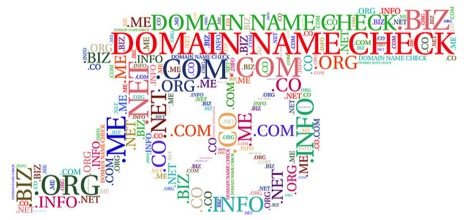Consider the following scenario: You’re a successful business owner, and you have a customer base that’s expanding daily.
Recently, you decided it’s time to start a website to continue growing your business, but when you try to register your trademark as your domain name, you find out someone else already owns it.
Without warning, you may have just become the victim of
cybersquatting.

What Is Cybersquatting?
Cybersquatting is the bad faith registration, trafficking in, or use of a domain name that is identical to, or confusingly similar to a distinctive mark, or dilutive of a famous mark, without regard to the goods or services of the parties.
In other words, cybersquatting is when someone beats a company to the punch by reserving the company’s name or trademark as a domain name with the bad faith intent to profit from it.
Cybersquatters perpetrate this act because they expect the company will buy the domain name back at an exorbitant price or pay a licensing fee to use it instead.
Cybersquatting is prohibited by federal law under the Anticybersquatting Consumer Protection Act (ACPA), but remains problematic because reserving domain names is primarily done on a first-come, first-served basis.
However, if a trademark owner can show:
- that it owns a distinctive or famous mark;
- that the defendant registers, uses, or traffics in a domain name that is identical to or confusingly similar to the distinctive or famous mark; and
- that the defendant had a “bad faith intent to profit” from the mark
A court can then award as much as $100,000 in statutory damages for each domain name, cancel or transfer the domain name to the rightful trademark owner, and even award the plaintiff attorney fees.
Domain Name Basics
Websites are identified by their Internet Protocol (IP) addresses, which consist of a series of numbers. A domain name is simply a more intuitive representation of the IP address that’s easier to remember.
For instance, the numbers 68.71.212.158 likely have no initial meaning to most people, but virtually everyone recognizes the domain name that represents them: www.espn.com.
For this reason, companies prefer to use their trademarks as their domain names because the public can locate them easily online.
Cybersquatters capitalize off this fact and reserve domain names knowing how valuable they are to trademark owners.
Cybersquatting in Michigan
Federal courts in Michigan have handled a number of cybersquatting lawsuits. One case in particular, Audi AG v. D’Amato, even made its way to the United States Court of Appeals for the Sixth Circuit.
In that case, Volkswagen and Audi sued an alleged cybersquatter in federal district court for registering the domain name www.audisport.com. The district court found that the website owner violated the ACPA, and he appealed.
The Sixth Circuit upheld the ruling, reasoning that even though the website provided information and goods to Audi enthusiasts, the owner of the domain name had no intellectual property rights in the “Audi” mark, and the owner of the domain name diverted consumers from purchasing goods and services from Audi’s legitimate website.
Therefore, even though the domain name owner wasn’t trying to coerce Audi into purchasing the domain name from him, he still violated the ACPA because the court found that he intended to capitalize off Audi’s mark; in other words, the defendant still had a bad faith intent to profit.
What If You’re the Cybersquatting Defendant?
An important aspect of cybersquatting liability hinges on the plaintiff proving that the defendant acted with the bad faith intent to profit. The ACPA has a so-called “safe harbor” provision that protects a domain name owner who “believed and had reasonable grounds to believe that the use of the domain name was a fair use or otherwise lawful.”
It is entirely possible that one can be sued for cybersquatting and not be found liable because she truly believed that her use of the domain name was legitimate.
If you think you’re the victim of cybersquatting, or if you believe that someone has wrongfully accused you of cybersquatting, contact our experienced Internet attorneys here or call 855-473-8474.




